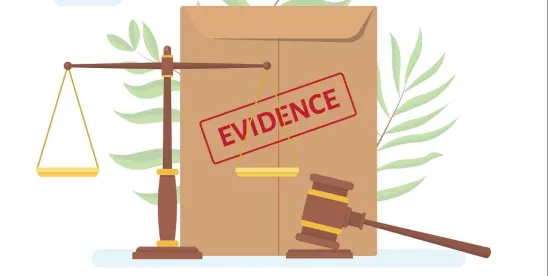Government contracts often include a termination for convenience clause, generally allowing federal agencies to cancel agreements when it serves the government’s interest. While this power is fairly broad, it is not absolute — and when misused, contractors may have legal recourse. Several court cases highlight situations where termination for convenience was found to be an abuse of discretion or bad faith.
For government contractors, understanding these legal precedents can help identify improper terminations and explore possible remedies.
When Termination for Convenience Becomes Abuse of Discretion
- Government Cannot Use Termination to Correct Procurement Mistakes
Case: Krygoski Constr. Co. v. United States, 94 F.3d 1537 (Fed. Cir. 1996)
Issue: The government mistakenly awarded a contract under a small business set-aside and later terminated it for convenience to fix the error.
Ruling: The court held that termination for convenience cannot be used to correct government procurement mistakes if it results in bad faith or an abuse of discretion.
Takeaway: The government cannot cancel contracts simply to undo its own errors in the bidding process.
- Termination Cannot Be Used to Escape a Bad Bargain\
Case: Torncello v. United States, 681 F.2d 756 (Ct. Cl. 1982)
Issue: The government terminated a contract for convenience after finding a cheaper option elsewhere.
Ruling: The court found that the government cannot use termination for convenience to walk away from an unfavorable deal.
Takeaway: Agencies cannot cancel contracts just to get a better price.
- Using Termination to Favor Another Contractor May Be Unlawful
Case: TigerSwan, Inc. v. United States, 110 Fed. Cl. 336 (2013)
Issue: The plaintiff argued that the contract was terminated as a pretext to award it to another contractor.
Ruling: The court held that if termination is used to intentionally circumvent contractor rights or favor a competitor, it may constitute an abuse of discretion.
Takeaway: The government cannot manipulate contract terminations to steer awards toward preferred vendors.
- Termination in Bad Faith Can Be Challenged
Case: Salsbury Indus. v. United States, 905 F.2d 1518 (Fed. Cir. 1990)
Issue: The contractor alleged bad faith in the termination decision.
Ruling: While the government generally has broad discretion, a termination in bad faith can be deemed wrongful.
Takeaway: Contractors must prove bad faith, but if successful, the termination can be overturned.
- Arbitrary or Capricious Terminations Can Be Contested
Case: Caldwell & Santmyer, Inc. v. Glickman, 55 F.3d 1578 (Fed. Cir. 1995)
Issue: The contractor argued that the termination was arbitrary and not in the government’s best interest.
Ruling: The court stated that terminations for convenience must have a rational basis and cannot be arbitrary.
Takeaway: If a contractor can prove a lack of reasonable justification, they may challenge the termination.
Key Legal Principles from These Cases
- Bad Faith or Pretextual Termination
The government cannot terminate a contract for convenience to avoid obligations or favor another contractor.
- Arbitrary or Capricious Terminations
If a termination lacks a rational basis or is done without reasonable justification, it may be an abuse of discretion.
- No Escape from a Bad Deal
The government cannot terminate a contract just because it finds a better option later.
What Can Government Contractors Do?
If a contractor believes a termination for convenience was wrongful, they may have legal remedies, including:
- Claim Breach of Contract Damages
Typically, a contractor is only entitled to termination settlement costs (e.g., costs incurred before termination, reasonable profit on completed work, etc.). However, if the termination was arbitrary, capricious, or in bad faith, it may be treated as a breach of contract, allowing the contractor to seek lost profits.
- Seek Contract Reinstatement
In rare cases, a court may reinstate a contract if performance is still possible.
- Request an Equitable Adjustment
If part of the contract is reinstated or re-awarded, the contractor may be able to recover increased costs due to the termination and subsequent reinstatement.
- Recover Attorneys’ Fees and Costs
If the contractor proves wrongful termination, they might, in limited circumstances, be entitled to legal cost reimbursement under the Equal Access to Justice Act.
Does the Sovereign Acts Doctrine Apply?
The Sovereign Acts Doctrine can shield the federal government from liability when its actions are taken in a public and general capacity (e.g., certain new legislation or wartime measures). However, if contract terminations are targeted at specific contracts rather than simply as a result of broad governmental actions, the doctrine may not apply.
So far, the Trump administration’s termination of federal contracts, although fairly widespread, has been targeted at specific types of contracts with specific agencies. As such, the government may have a difficult time establishing that its actions were not targeted at particular contracts.
Final Thoughts: Protecting Your Rights as a Government Contractor
While the government has fairly broad discretion to terminate contracts for convenience, that power is not unlimited. If termination appears pretextual, arbitrary, or in bad faith, contractors should:
- Review past legal precedents
- Assess with counsel whether the termination lacks a rational basis
- Gather evidence to support a potential challenge
- Pursue legal remedies to recover losses
By understanding their rights and legal options, government contractors may be able to protect themselves from wrongful terminations and seek just compensation.





 />i
/>i

